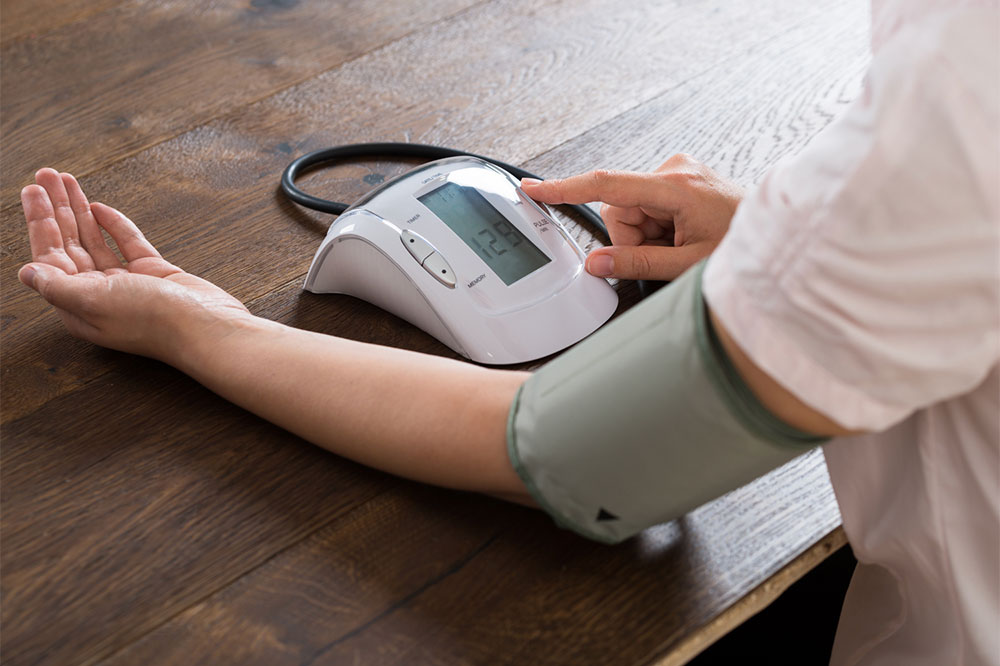Blood Pressure – Its Syptoms and Risk Factors
High blood pressure, commonly referred to as hypertension, is a common condition where the blood’s constant pressure against the walls of the arteries is so high that it may eventually lead to health problems, such as heart disease. Blood pressure is influenced by how much blood the heart pumps and how much resistance the arteries present to blood flow. Blood pressure will increase as the arteries become constricted and the heart pumps more blood.
Symptoms of high blood pressure
Many people live with high blood pressure for years with no apparent signs or symptoms. However, if blood pressure is uncontrolled, there’s a higher risk of developing significant health issues, such as heart attacks and strokes.

Even when blood pressure measurements are dangerously high, most persons with high blood pressure show no signs or symptoms. Only a small percentage of people with high blood pressure have headaches, shortness of breath, or nosebleeds. These signs and symptoms typically don’t appear until high blood pressure has reached a severe or life-threatening level.
Risk factors of high pressure
There are various risk factors for high blood pressure, including:
Age
As you age, the risk of high blood pressure rises. High blood pressure is more prevalent in men up until age 64.
Race
Individuals of African descent are more likely to have high blood pressure than Caucasians and frequently develop it earlier in life. People of African ancestry also tend to experience more severe consequences like heart attack, stroke, and renal failure.
Complications that might arise due to hypertension
High blood pressure can harm the blood vessels and organs because it puts too much strain on the walls of the arteries. The harm increases when blood pressure rises and remains uncontrolled for longer.
Uncontrolled hypertension can result in issues like:
Angina or a stroke
A heart attack, stroke, or other difficulties can result from atherosclerosis, which is the hardening and thickening of the arteries.
Aneurysm
Arteries may weaken and swell due to high blood pressure, developing an aneurysm. A ruptured aneurysm may pose a risk to life.
Heart attack
The heart needs to work harder to pump blood against the greater pressure in the veins. The walls of the heart’s pumping chamber get thicker as a result (left ventricular hypertrophy). Heart failure can result if the thickened muscle eventually struggles to pump enough blood to meet the body’s demands.
Moreover, when the arteries leading to the kidneys’ blood become weaker and narrower, it may hinder the regular operation of certain organs. Blood vessels in the eyes also may become enlarged, constricted, or torn. Loss of vision may occur from this.
Metabolic disorder
This syndrome is a collection of metabolic abnormalities in the body, including a bigger waist, higher triglyceride levels, lower HDL cholesterol (good cholesterol), higher blood pressure, and higher insulin levels. Diabetes, heart disease, and stroke are all illnesses that increase the risk of developing metabolic disorders.
How to detect high blood pressure
Only a doctor or qualified healthcare provider can determine if someone has high blood pressure. The blood pressure can be quickly and painlessly measured. SMBP monitoring, also known as self-measured blood pressure (SMP) monitoring, is something you should discuss with your medical team. Because high blood pressure typically has no warning signs or symptoms and many individuals are unaware they have it, it is referred to as the “silent killer.”
How to prevent or manage high blood pressure
Making lifestyle modifications can help many people with high blood pressure bring their levels under control and maintain it. Some of the ways to manage it are as follows:
- Exercising for 150 minutes or more per week (about 30 minutes a day, five days a week)
- Maintaining a balanced food regimen and avoiding sodium (salt)
- Maintaining a healthy weight
- Controlling stress
- Study up on methods for controlling and preventing high blood pressure
Some people with high blood pressure may need to adopt beneficial lifestyle changes and eat foods that lower blood pressure. Along with that, they can even choose alternative treatments. However, it is essential to speak to a doctor before opting for any of them, as they could have side effects.
High blood pressure can rupture or block the arteries that carry blood and oxygen to the brain, resulting in a stroke. During a stroke, brain cells perish because they do not receive enough oxygen. Serious impairments in speech, movement, and other everyday activities can result after a stroke. High blood pressure is also associated with dementia and decreased cognitive function later in life, particularly in midlife. Therefore, identifying symptoms early on and taking the right preventive measures can help live a longer and fuller life.

